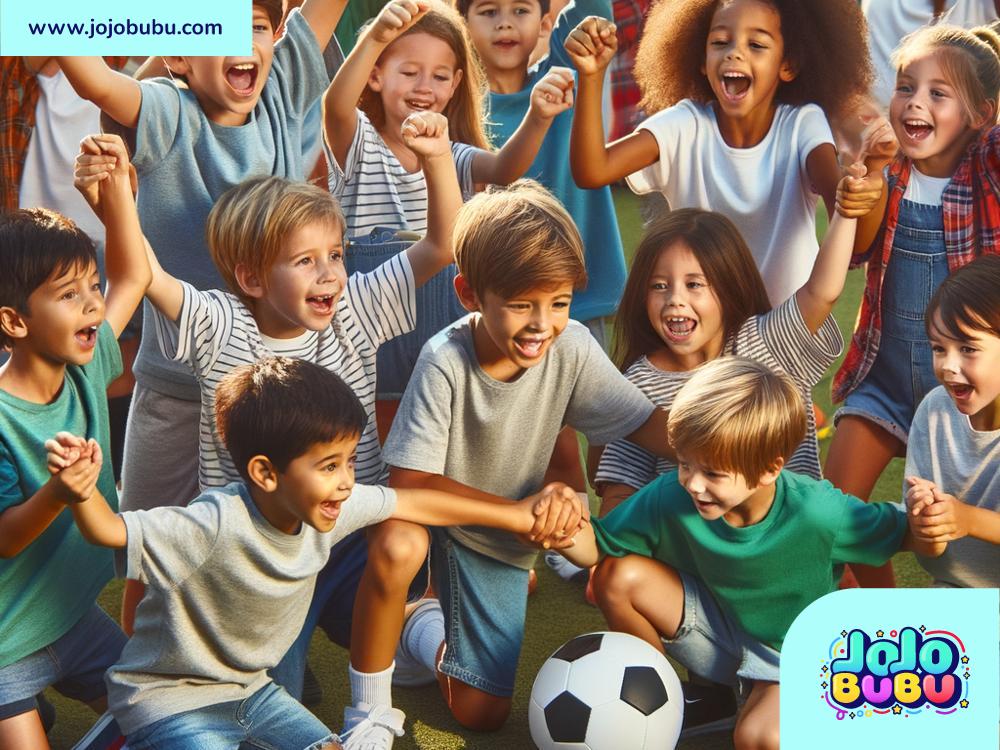Sibling Interactions During Sports and Clubs: Strengthening Bonds Through Shared Activities
Sports and clubs are not just about physical fitness or learning new skills; they’re also about building relationships. If siblings are part of the same activities, the experience can become something truly special. Sibling interactions during sports and clubs can be a mix of teamwork, competition, support, and even a bit of rivalry. But in the end, these interactions often strengthen their bond in unique ways.
The Power of Shared Activities
When siblings join the same sport or club, they share experiences that become precious memories. Whether it's scoring a goal together, performing at a recital, or working on a project for a club, these moments create a sense of connection. Being part of the same activity gives siblings shared goals and challenges. This strengthens their teamwork and helps them appreciate each other's abilities more deeply.
For example, if two brothers play soccer on the same team, they might practice passing to each other or cheer each other on during games. Through teamwork, they learn to rely on one another and build trust. This sense of partnership often spills over into their relationship outside of sports or clubs, making them stronger as siblings.
Support and Encouragement
One of the best aspects of siblings being part of the same activity is the support they give each other. When you're part of a team, there are highs and lows—wins and losses, successes and failures. Siblings often become each other’s biggest cheerleaders during these moments.
Imagine a situation where an older sister is part of a drama club with her younger brother. She might encourage him to audition for a solo part or help him rehearse his lines. For the younger sibling, this can feel like a huge boost of confidence. When siblings support and encourage each other like this, it fosters a sense of belonging, not only in the club but within the family.
Even during tough times, sibling interactions can be uplifting. If one sibling feels nervous before a sports game or let down after a loss, the other can offer words of comfort or reassurance. Having someone who understands your feelings can make a huge difference.
Healthy Competition: A Double-Edged Sword
While teamwork and support are certainly beneficial, there’s also the aspect of competition between siblings. Competing in the same activity can be fun, but it can sometimes lead to comparisons. For example, if two sisters are in the same swimming team, one might swim faster or win more medals than the other. This can create feelings of jealousy or frustration if not handled carefully.
Parents and coaches have an important role in encouraging healthy competition. Instead of comparing siblings, they can focus on each child’s personal progress and strengths. Helping siblings celebrate each other’s achievements instead of comparing them can keep the competition friendly and motivating.
On the bright side, healthy competition can push siblings to do their best. It can inspire them to improve their skills and work harder. The key is to keep the competition fun and balanced, rather than letting it turn into rivalry.
Navigating Challenges Together
Joining sports or clubs together also means facing challenges together. Whether it’s losing a game, dealing with a demanding coach, or handling a stressful deadline for a club project, siblings often find themselves navigating challenges side by side. These moments can teach them important life lessons, like how to handle failure, compromise, and work together toward shared success.
For example, siblings who are part of a debate club might have disagreements about what points to include in their argument. Learning to resolve these conflicts respectfully can strengthen their communication skills. Over time, they’ll realize how valuable it is to have someone by their side when things get tricky.
Building Lifelong Memories
Sibling interactions during sports and clubs create memories that last a lifetime. These shared moments are often talked about for years, shaping the way siblings view their relationship as they grow older. Whether it’s the day they won a competition together or the funny mistakes they made while practicing, these stories become part of their family history.
When siblings work, compete, and laugh together, it’s not just the activity that they’re building—they’re also building their connection as brothers or sisters.
Tips for Parents
If you're a parent with siblings involved in the same sport or club, here are some tips to make the experience positive:
-
Celebrate Their Individuality: Every child has their own strengths and challenges. Avoid comparing siblings and focus on recognizing their individual progress.
-
Encourage Teamwork: Help siblings see each other as teammates rather than competitors. This will foster collaboration and reduce rivalry.
-
Be Fair: If one sibling gets more attention or praise than the other, it could create resentment. Try to be fair with your encouragement and involvement.
-
Create Space for Bonding: Support opportunities for siblings to interact and bond over the activity, whether it means practicing together or attending events as a family.
Conclusion
Sports and clubs are wonderful opportunities for siblings to connect, grow, and create lasting memories. While there may be moments of competition or disagreement, the shared experience often brings siblings closer together. From teamwork and encouragement to navigating challenges, interacting through activities is a chance for siblings to strengthen their relationship in special ways.
By participating in the same sport or club, siblings learn how to support each other, respect each other’s abilities, and celebrate each other’s achievements. Most importantly, they create a foundation of love and teamwork that goes beyond the field, court, or clubroom—and lasts for a lifetime.

